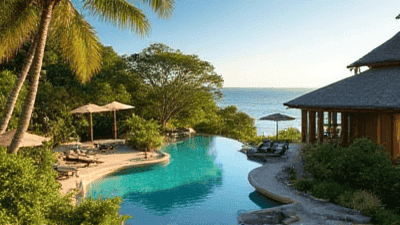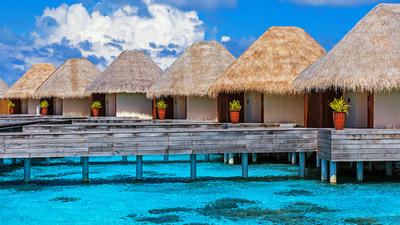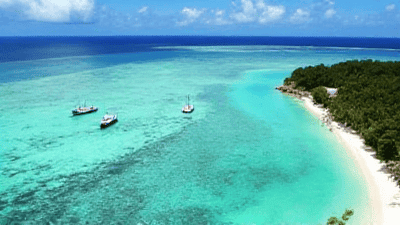
In recent years, a remarkable transformation has taken place in the world of tourism. As travelers become more aware of their environmental impact, the demand for eco-friendly accommodations has surged. This shift is evident in the rise of eco-friendly resorts, where luxury meets sustainability.
The Shift in Traveler Mindset
The growth of eco-friendly resorts can be attributed to a significant change in consumer behavior. Travelers are increasingly seeking experiences that align with their values, particularly when it comes to environmental sustainability. The rise of social media has further amplified this trend, as people share their experiences and advocate for responsible tourism.
Millennials and Gen Z, who are now the largest cohorts of travelers, prioritize sustainability in their purchasing decisions. They are not only concerned about the environmental footprint of their vacations but also about supporting businesses that practice ethical and responsible tourism. This has created a powerful market for eco-friendly resorts, which offer luxury experiences without compromising on sustainability.
Defining Eco-Friendly Resorts
Eco-friendly resorts aim to provide sustainable tourism experiences while offering the same level of comfort and luxury that traditional resorts provide. These establishments incorporate environmentally friendly practices into every aspect of their operations, from construction and design to daily management.
Key Features of Eco-Friendly Resorts
-
Sustainable Building Materials: Eco-friendly resorts often utilize local and sustainable materials in their construction. This not only reduces the carbon footprint associated with transporting materials but also supports local economies.
-
Energy Efficiency: Many eco-resorts are designed to be energy-efficient, using renewable energy sources such as solar panels and wind turbines. This commitment reduces reliance on fossil fuels and lowers greenhouse gas emissions.
-
Water Conservation: Eco-resorts implement innovative water-saving technologies, including rainwater harvesting systems and low-flow fixtures. These measures are crucial in areas where water scarcity is a concern.
-
Waste Management: A key principle of sustainability is reducing waste. Eco-friendly resorts often practice composting, recycling, and minimizing single-use plastics. Many even grow their own fruits and vegetables, further reducing waste associated with food transport.
-
Biodiversity Conservation: Many eco-friendly resorts are located in pristine natural environments. They often engage in biodiversity conservation efforts, protecting local wildlife and ecosystems.
-
Community Engagement: Eco-resorts often invest in local communities by sourcing goods and services locally and providing employment opportunities. They may also engage travelers in cultural experiences that promote local heritage and traditions.

The Luxury Factor in Eco-Resorts
Contrary to the misconception that eco-friendly accommodations are basic or rustic, many eco-friendly resorts provide lavish amenities. Guests can enjoy comfortable beds, gourmet dining options, spa services, and stunning views—all while knowing that their stay is contributing to a positive environmental impact.
Examples of Luxurious Eco-Friendly Resorts
-
The Brando, French Polynesia: This luxury resort is set on Marlon Brando's private island and features overwater bungalows. The Brando is powered by renewable energy, including solar and coconut biodiesel. The resort also focuses on marine conservation and offers eco-tours.
-
Six Senses, Various Locations: Six Senses resorts are renowned for their commitment to sustainability and luxury. With locations in Thailand, the Maldives, and Portugal, they emphasize organic gardens, waste management, and community-driven projects. Their wellness programs also promote holistic health and rejuvenation.
-
Lapa Rios Lodge, Costa Rica: Nestled in the Osa Peninsula, this resort offers a unique rainforest experience. Built with sustainable materials, it focuses on conservation and eco-adventures while providing upscale accommodations and gourmet dining.
-
Amanjiwo, Indonesia: Located near the ancient Borobudur temple, Amanjiwo is a stunning resort that incorporates local materials and architecture. The resort promotes community development and cultural immersion while offering a luxurious experience.
The Experience of Staying in Eco-Friendly Resorts
Guest experiences in eco-friendly resorts often include personalized itineraries that highlight sustainable practices and community engagement. Activities may include guided nature walks, wildlife spotting, snorkeling in coral reefs, and cooking classes featuring local ingredients.
Travelers are encouraged to connect with the environment during their stay, fostering a deeper appreciation for nature. Many eco-resorts offer opportunities for guests to participate in conservation projects, enabling them to give back while enjoying their vacation.
The Future of Eco-Friendly Resorts
As the trend toward sustainable tourism continues to grow, eco-friendly resorts are poised to become a dominant sector of the travel industry. Industry stakeholders are recognizing the benefit of adopting sustainable practices—not only for the environment but also for improving guest satisfaction and loyalty.
Innovations in Eco-Tourism
The rise of technology is also influencing the development of eco-friendly resorts. Advanced building materials, smart energy management systems, and innovative water conservation methods are just a few examples of how technology is being integrated into sustainable tourism.
Furthermore, educational initiatives are becoming increasingly important in eco-resorts. Providing guests with knowledge about local ecosystems and sustainability practices allows them to become ambassadors for environmental conservation in their own communities.
Conclusion
The rise of eco-friendly resorts represents a significant shift in the tourism landscape, where luxury and sustainability coexist harmoniously. As travelers seek to make more responsible choices, eco-resorts offer a way to enjoy a lavish vacation while minimizing environmental impact.
Incorporating sustainable practices into the core of their operations, these resorts not only provide comfort and luxury but also promote conservation and community engagement. As we move toward a more sustainable future, eco-friendly resorts will undoubtedly play a pivotal role in shaping the tourism industry.



